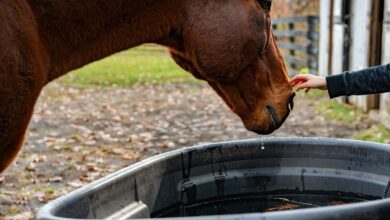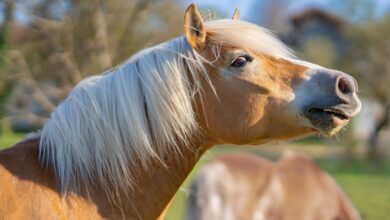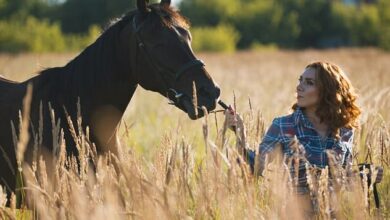by Al Badia,
Horses are magnificent animals that have been domesticated for thousands of years. Their unique personalities and behaviours have captivated humans, making them a popular choice for companionship, transportation, and sports. Understanding horse behaviour is essential for anyone who works or interacts with horses, as it can help improve their care and training.
Horses are social animals and thrive on companionship. In the wild, they live in herds and establish a social hierarchy based on dominance and submission. This hierarchy is established through various behaviours, such as nudging, biting, and kicking. When horses are domesticated, they still retain this social behaviour and will often form strong bonds with their herd mates, as well as their human handlers.
One of the most important aspects of horse behaviour is their body language. Horses communicate through body language, which can include ear position, tail movement, and facial expressions. Understanding these signals is crucial for interpreting their moods and intentions. For example, a horse with ears pinned back and a swishing tail is likely to be agitated or angry, while a relaxed horse will have its ears forward and a lowered head.
Horses also have a natural flight response, which means they will instinctively run away from perceived danger. This response is rooted in their survival instincts in the wild, where running away from predators was essential for their survival. Understanding this response is crucial for anyone handling horses, as sudden movements or loud noises can trigger a horse’s flight response and lead to dangerous situations.
Another important aspect of horse behaviour is their natural grazing behaviour. Horses are grazers and have a natural inclination to eat small amounts of food throughout the day. This behaviour is reflected in their digestive system, which is designed to process small amounts of food over an extended period. Providing horses with access to pasture or hay throughout the day is essential for their physical and mental well-being.
Training is an essential part of horse ownership, and understanding horse behaviour is crucial for successful training. Horses respond best to positive reinforcement training, which rewards good behaviour with treats or praise. Punishing bad behaviour can lead to fear or anxiety in horses, making them more difficult to train in the long term.
Finally, it is important to understand that horses are individuals with their own personalities and preferences. Some horses may be more outgoing and friendly, while others may be more reserved or even fearful. Understanding each horse’s individual behaviour can help improve their care and training, leading to a more successful and rewarding relationship between horse and human.
In conclusion, understanding horse behaviour is essential for anyone who works or interacts with horses. Horses are social animals with unique personalities and behaviours, and understanding their body language, natural instincts, and individual preferences can help improve their care, training, and overall well-being. By respecting and understanding horses’ natural behaviour, we can build strong and rewarding relationships with these magnificent animals.








